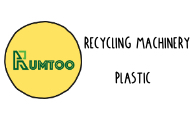While mechanical recycling has been the mainstay of plastic recycling in Europe, chemical recycling is emerging as a potentially transformative technology that could shape the future of the industry1.
Chemical recycling offers solutions to some of the limitations of mechanical recycling. It can process a wider range of plastic types, including mixed and contaminated plastic waste that is currently considered non-recyclable1. This could significantly increase the volume of plastic waste that can be recycled and reused.
Moreover, chemical recycling can produce plastic of equal quality to virgin plastic. This is because it breaks down plastic waste into its constituent monomers, which can then be reassembled into new plastic polymers1. This could make recycled plastic more attractive to industries that require high-quality plastic, such as the food and beverage industry.
However, the role of chemical recycling in the future of plastic recycling will depend on overcoming several challenges. The technology is still in its early stages and is currently more expensive than mechanical recycling1. It also requires significant energy input, which could impact its environmental footprint1.
Despite these challenges, there is significant interest and investment in chemical recycling. Research is ongoing to improve the efficiency and reduce the costs of chemical recycling processes1. Moreover, the European Commission has recognized the potential of chemical recycling and is supporting its development through funding and policy measures2.
In conclusion, chemical recycling has the potential to play a significant role in the future of plastic recycling in Europe. By offering solutions to the limitations of mechanical recycling and producing high-quality recycled plastic, it could help Europe achieve its recycling targets and transition towards a circular economy.
Reprodukcija nije dopuštena bez dopuštenja.:Rumtoo strojevi » Uloga kemijskog recikliranja u budućnosti recikliranja plastike

 Rumtoo strojevi
Rumtoo strojevi Raspitajte se sada
Raspitajte se sada 
